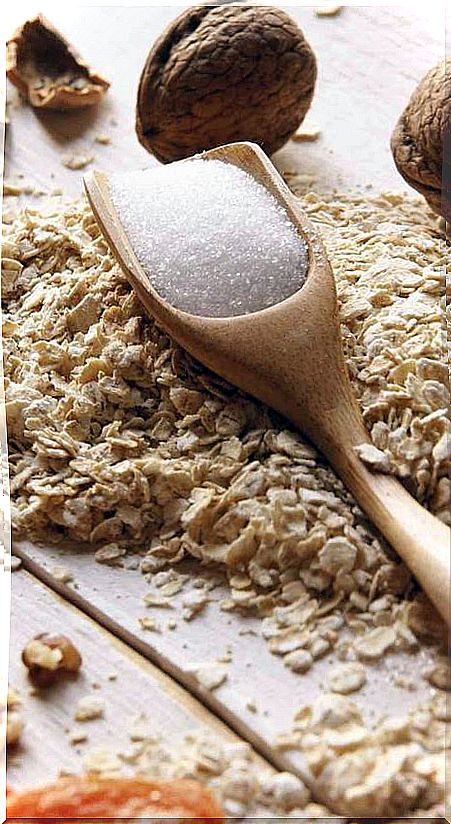Erythritol: The 10 Facts You Should Know About The Additive That Is In Fashion
For those who want to sweeten their desserts and drinks but do not want to resort to sugar, erythritol may be an option. Know well the properties of this sweetener and do not abuse it.

Many people find it difficult to renounce the sweetening power of sugar, either to accompany coffee and infusions or for desserts and pastries, and that is why they look for alternatives. Erythritol is a sweetener that can be used to replace sugar.
1. What is erythritol?
Erythritol is a sweetener that belongs to the family of sugar alcohols called polyols and is naturally formed in some fruits and fermented foods.
The body does not assimilate it at the intestinal level, so it is healthier than other synthetic alternatives. And since it does not provide calories, it does not increase blood sugar levels.
2. Does it have healthy properties?
Unlike other polyols, such as xylitol or maltitol, it has the advantage that it is better tolerated in the intestine and does not alter the microbiota. On the contrary, in adequate doses it can serve as a prebiotic to feed the bacteria in the intestine. However, it should be avoided if you suffer from any intestinal pathology.
Erythritol is used in light products , but keep in mind that, in general, these are not recommended. When sweet foods are consumed, the brain awaits the arrival of substances to produce calories and energy that do not arrive. Therefore, eating products with sweeteners may produce a greater need to eat sweet.
From my point of view, it is best to use natural sweeteners and encourage the taste buds to adapt to a less sweet taste. You can use fruit, syrups, coconut sugar …, although none is caloric and it is not advisable to abuse.
3. Where is erythritol obtained from?
Erythritol is produced industrially through a natural process of fermentation of glucose that is extracted from the starch of corn or wheat, by the action of a yeast called Moniliella pollinis, among others. To find out if a product contains erythritol, look for the reference E-968 among the components on the label.
4. Are there foods rich in erythritol?
Of course. Some fruits naturally contain small amounts of this substance, such as grapes, watermelons, melons, pears or peaches. It can also be found in some mushrooms, such as mushrooms, and in some fermented products, such as soy sauce, wine, or cheese.
Erythritol is found naturally in fruits such as pears, melons, and grapes.
5. What is the maximum recommended dose?
It should not be consumed above 50 g per day. Although it is rapidly absorbed in the small intestine, it passes into the blood and is eliminated in the urine, that is, it does not ferment because it does not reach the large intestine. If taken in excess, it can cause gas, discomfort, nausea, etc.
6. In which cases is its consumption recommended above all?
For diabetics it is a healthy option, since it does not cause an increase in blood glucose or the creation of insulin. Also, some studies have concluded that erythritol acts as a protector against tooth decay if consumed for a long time.
7. Is it true that it is an antioxidant?
In diabetic rats, its consumption was found to have a protective effect on the endothelium of the aortic artery. Similarly, a study with people with type 2 diabetes showed that its sustained consumption improved endothelial function, reducing arterial stiffness.
8. Do you have any contraindications?
In general, no, but as it is a synthesized product, the body does not recognize it as a nutrient. It is advisable to consume it in homemade preparations and avoid light processed products, which can carry other harmful substances. In my opinion, it is preferable to use it occasionally.
Ideally, consume the preparation containing erythritol the same day it is prepared.
9. Is it recommended to mix with other sweeteners?
Due to its molecular composition, erythritol has a certain bitterness, as well as a slight cooling effect in the mouth when it dissolves, so it is advisable to mix with stevia. If it is made with the natural thickener xanthan gum, it will obtain fluffier textures.
10. How can you substitute erythritol for refined sugar?
Erythritol is only 70% as sweet as sugar, so it is slightly less intense. For this reason, when you want to replace the refined sugar in the preparations, it is necessary to add a slightly larger amount than the recipe indicates.









